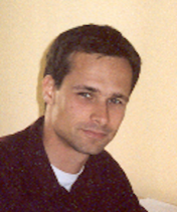New Global Network of Web Science Laboratories announced at WebSci10
EMBARGO 00.01 Tuesday 27 April 2010
A new international network announced yesterday (Monday 26 April 2010) creates an alliance of world-class research laboratories to support the Web Science research and education program.
The Web Science Trust Network of Laboratories (WSTNet) combines some of the world’s leading academic researchers in Web Science, with new academic programs that will enhance the already growing influence of Web Science.
WSTNet will be managed by the Web Science Trust, which brings together academics, business leaders, entrepreneurs and policy-makers from around the world with the goal of fostering multidisciplinary research to study the World Wide Web and describe the issues and challenges that will shape its future use and design.
Through a number of specific agreements and commitments with the Web Science Trust, the member Labs will provide valuable support for the ongoing development of Web Science.
‘This is yet another important milestone in the progress of Web Science,’ said Sir John Taylor, Chair of the WST Trustee Board. ‘We are linking together a group of highly respected research laboratories which are all already making internationally-leading contributions through their research. We look forward to what we can achieve together in the future, through a series of joint research programs, events, and collaborations.’
Contributions from the Labs will include the organization and hosting of summer schools, workshops and meetings, including the WebSci conference series. The WSTNet Labs will also identify opportunities for new events and fundraising, all as part of the ongoing development of Web Science.
The announcement of WSTNet was made at the WebSci10 conference taking place in Raleigh, North Carolina, USA, from 26 to 27 April, and co-located with the World Wide Web conference. Representatives of all the Labs are attending the conference along with researchers from the many different disciplines which are involved in Web Science.
‘WSTNet will extend our global research capabilities in Web Science as well as ensuring that the subject is built into university syllabuses,’ said Professor Dame Wendy Hall, Managing Director of WST and one of the founders of the discipline of Web Science. ‘We will continue to extend the network to other research institutes which are already committed to Web Science.
‘We are delighted to welcome on board all the Labs and look forward to further exciting developments in the future.’
The full list of Founding WSTNet Labs is:
Annenberg Network of Networks, University of Southern California http://ascnetworksnetwork.org/
Decentralized Information Group (DIG), Massachusetts Institute of Technology http://dig.csail.mit.edu/
Department of Computer Science, VU Amsterdam http://www.cs.vu.nl/en/research/business-informatics/index.asp
Digital Enterprise Research Institute, NUI Galway http://www.deri.ie/
Institute for Web Science and Technologies (WeST), Universitat Koblenz-Landau http://west.uni-koblenz.de/
Oxford Internet Institute http://www.oii.ox.ac.uk/
Science of Networks in Communities (SONIC) Lab, Northwestern University http://sonic.northwestern.edu/
Tsinghua-Southampton Web Science Laboratory at Shenzhen http://weblab.sz.tsinghua.edu.cn/
Web Science Research Centre, Rensselaer Polytechnic Institute http://tw.rpi.edu/
Web Science Research Group, University of Southampton http://webscience.ecs.soton.ac.uk/
Notes for Editors
For further information about Web Science and the Web Science Trust see http://www.webscience.org
For further information about WebSci10 see http://www.websci10.org/
The Web Science Trust (WST) is a charitable body with the aim of supporting the global development of Web Science.
For further information contact:
Professor Dame Wendy Hall, School of Electronics and Computer Science, University of Southampton (wh@ecs.soton.ac.uk; tel.+44(0)23 8059 3255)
Joyce Lewis, Communications Manager, School of Electronics and Computer Science, University of Southampton (j.k.lewis@ecs.soton.ac.uk)

